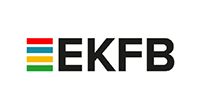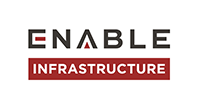Project Introduction.
extracting valuable insights and forecasts for informed decision making
EKFB, a joint venture comprising Eiffage, Kier, Ferrovial Construction, and BAM Nuttall were appointed by HS2 to undertake civil engineering works for an 80km section of the high-speed rail link, including viaducts, tunnels, road diversions, bridges, and extensive excavation. EKFB required support to introduce data analytics and data science techniques into the project controls domain, owing to the challenges of leveraging substantial project data to extract valuable insights and forecasts for informed decision-making and improved project outcomes.

The Problem.
The efficient utilisation of extensive project data for extracting meaningful insights and forecasts within project controls was impeded by various challenges. Multiple data sources with inconsistent formats hampered integration, and the complex organisational structure created difficulties in accessing relevant information. Furthermore, security concerns arose from using external software for analytics, posing risks to sensitive project data.
The team sought to overcome these obstacles by introducing innovative data analytics techniques tailored for project controls, with a focus on addressing data integration issues, streamlining access processes, and ensuring the implementation of secure analytics solutions.
Our Solution.
Movar’s integration of data science, engineering, data analytics, and front-end development at EKFB on the HS2 project revolutionised project controls. Leveraging software tools & techniques such as Nodes, Links, Aphex, Python, and Power BI, the team automated processes, generated valuable insights and forecasts, and visualised 3D models linked with P6.
This innovation significantly improved decision-making, reduced costs, and enhanced overall project performance. Its transformative potential extends beyond HS2, promising to transform project controls industry-wide by effectively managing and analysing large volumes of diverse data. The use of Azure as a cloud platform highlights the efficiency of cloud-based solutions, anticipating recognition in future industry publications for its impact on project controls management.

























